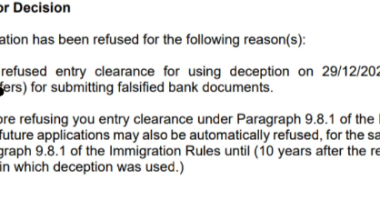Have you ever wondered what it’s like to face discrimination not just in your daily life, but when seeking a new home in a foreign land?
As someone who has navigated the complex world of immigration, I’ve encountered a disturbing trend that often goes unnoticed: some countries actively exclude autistic individuals from their immigration policies.
This article will take you on a journey through the maze of international immigration laws, shedding light on a practice that affects thousands of neurodivergent individuals worldwide.
The Harsh Reality: Countries with Exclusionary Policies
When I first stumbled upon this information, I was shocked. How could nations that pride themselves on diversity and inclusion have such discriminatory policies? Let’s dive into some specific examples:
Australia

Australia, known for its stunning landscapes and vibrant multiculturalism, has a dark side when it comes to immigration policies for autistic individuals.
The country’s Migration Act 1958 allows for the rejection of visa applications based on health requirements, and autism often falls under this category.
- The “one fails, all fail” policy: If one family member is deemed to have a condition that might incur significant costs to the Australian community, the entire family’s visa application can be rejected.
- The arbitrary cost threshold: Australia sets a cost threshold of AUD 49,000 over 10 years. If the potential health and social services costs for an autistic immigrant are estimated to exceed this amount, their application is likely to be denied.
I remember speaking with Sarah, an autistic software engineer whose dreams of moving to Sydney were shattered when her visa application was rejected solely due to her diagnosis.
“It felt like my skills and potential contributions meant nothing,” she told me, her voice tinged with disappointment.
New Zealand
New Zealand, often hailed as a progressive nation, follows a similar path to its neighbor.
The country’s immigration policy includes a health requirement that can exclude autistic individuals, regardless of their skills or potential contributions to society.
- The “acceptable standard of health” criterion: This vague term often works against autistic applicants, as autism is frequently viewed as a condition that doesn’t meet this standard.
- Limited exceptions: While there are some exceptions for family members of New Zealand citizens or residents, these don’t apply to most skilled worker or student visa categories.
You might be wondering, “How does this align with New Zealand’s reputation for inclusivity?”
It’s a question I’ve grappled with myself, and the answer is uncomfortable: sometimes, a nation’s public image doesn’t match its policies.
Canada

Canada, often perceived as a beacon of inclusivity, has a more nuanced approach. While not outright banning autistic immigrants, the country’s immigration policies can still create significant barriers:
- The “excessive demand” clause: This policy allows for the rejection of immigrants who might place “excessive demand” on health or social services.
- Case-by-case assessments: While this approach allows for more flexibility, it can also lead to inconsistent decisions and potential discrimination.
Imagine preparing for years to move to a new country, only to be told that your neurological differences make you an “excessive demand.”
It’s a harsh reality that many autistic individuals face when considering Canada as their new home.
The Impact: Beyond Numbers and Policies
When we talk about immigration policies, it’s easy to get lost in the legal jargon and statistics. But let’s take a moment to consider the human cost of these exclusionary practices:
Dreams Deferred: The Personal Toll
For every visa application rejected, there’s a story of dreams put on hold or abandoned entirely. Think about the brilliant autistic scientist who could have made groundbreaking discoveries, or the talented autistic artist whose unique perspective might have enriched a nation’s cultural landscape.
I’ve spoken with countless individuals whose lives were upended by these policies. There’s Michael, a gifted mathematician whose research could have advanced his field significantly, now unable to accept a prestigious position at an Australian university. Or Aisha, a young woman separated from her partner in New Zealand, their plans for a life together thrown into disarray by an immigration system that sees her autism as a burden rather than a unique aspect of her identity.
Economic Losses: A Short-Sighted Approach
Countries that exclude autistic immigrants aren’t just missing out on diverse perspectives; they’re potentially losing out on significant economic contributions. Did you know that many successful entrepreneurs and innovators are on the autism spectrum?
- Tech industry insights: Companies like Microsoft and SAP have specific programs to recruit autistic employees, recognizing their unique skills and perspectives.
- Untapped potential: By excluding autistic immigrants, countries miss out on a pool of talent that could drive innovation and economic growth.
Social Impact: Reinforcing Stigma and Misunderstanding
These exclusionary policies don’t just affect those directly impacted by visa rejections; they send a broader message to society:
- Perpetuating stereotypes: Such policies reinforce the harmful notion that autistic individuals are a “burden” rather than valuable members of society.
- Hindering progress: By limiting diversity, these nations slow down societal progress towards true inclusivity and understanding of neurodiversity.
A Call for Change: What Can We Do?
As we’ve explored this complex issue, you might be feeling a mix of anger, sadness, and a desire for change. So, what can we do to address this injustice?
- Raise awareness: Share this information with your networks. Many people are unaware of these discriminatory policies.
- Support advocacy groups: Organizations like the Autistic Self Advocacy Network work tirelessly to fight for the rights of autistic individuals, including in immigration matters.
- Engage with policymakers: Write to your representatives, urging them to reconsider these exclusionary policies and promote more inclusive immigration practices.
- Challenge your own biases: Reflect on your perceptions of autism and neurodiversity. Are there ways you can promote inclusivity in your own community?
- Amplify autistic voices: Support and listen to autistic individuals sharing their experiences and perspectives on these issues.
As we conclude this exploration of countries that don’t allow autistic immigrants, I’m left with a mixture of frustration and hope. Frustration at the persistence of these discriminatory policies, but hope in the power of awareness and collective action to bring about change.
Remember, every time we exclude someone based on neurodiversity, we lose a unique perspective, a potential innovation, a piece of our shared human experience. It’s time to tear down these invisible barriers and build a world where everyone, regardless of neurological differences, has the opportunity to find a place they can call home.
What steps will you take today to promote a more inclusive world for autistic individuals?






